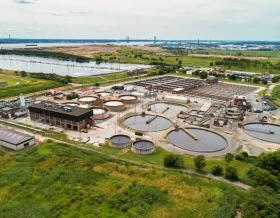The challenges facing high streets up and down the U.K. are widely reported and have been exacerbated by the COVID-19 pandemic. However, it’s not all bad news – COVID-19 has also highlighted the importance and power of local high streets to serve local communities, with people spending more time in their local areas and valuing these spaces because of lockdown rules. Local authorities all across the country are setting out to restore the confidence in their cities and towns and seizing the opportunity to rethink the way people live and move around the city.
Any attempt to change the urban landscape is a highly complex process, and regeneration takes time. Instead of large, one-off projects, developers are looking at long-term projects which are multi-phased and multi-faceted, taking into consideration demographic, socio-economic, environmental, infrastructural, cultural and political factors. All in all, urban regeneration is a complex, real-world problem.
In late 2019, we announced our partnership with the London Interdisciplinary School, an educational institution helping to develop the innovators of the future who will be able to tackle challenges like urban regeneration by thinking beyond one-dimensional solutions to find better ways for tomorrow. To get the next generation thinking about the future of urban centers, we launched the LIS x Jacobs challenge.
To enter the challenge, students aged between 16 and 20 had to write between 300 and 500 words and produce a visual piece in response to one of the two design questions below:
Challenge A
Re-design your local neighborhood center (e.g. high street, town center, city center) for the world of 2050 using one aspect of sustainability from the list below:
- Reducing waste (e.g. landfill, food).
- Reducing energy consumption.
- Improving air quality.
- Encouraging active travel (e.g. walking, cycling).
- Social sustainability (e.g. improving social inequalities).
Challenge B
Consider the effects that regeneration in local neighborhood centers might have on big iconic high streets like Oxford Street (London), the Bullring (Birmingham) and Market Street (Manchester)?
The Judging Panel
Thomas Darcy (City Growth Director, Jacobs)
Nivedita Vijayan (Principal Urban Designer, Jacobs)
Lisa Woo (Head of Place Making, London Borough of Enfield)
Mathilde Lebreton (Senior Project Officer, Greater London Authority Regeneration Team)
Marielle van der Meer (Director of Partnerships and Networks, LIS)
Dr Ash Brockwell (Faculty, LIS)
The judging panel was really impressed with the standard of entries, with the winner Mathilda Blunt looking at how to make the most of green spaces within tightly packed cities. Alex Doyle and Mike Tuthill both received highly commended awards for their submissions on social sustainability with a focus on water availability, and the impact that active, green travel could have on Cardiff city center, respectively.
Mathilda, Mike and Alex are receiving 1:1 mentoring from Jacobs and are all invited to present their ideas to a broader senior professional audience during a “showcase and share” event hosted by LIS and Jacobs with invited attendees from Greater London Authority. Mathilda will also shadow Jacobs virtually on one of our multi-billion-pound regeneration projects in London.
You can read more about the challenge and each of the submissions here.
























































